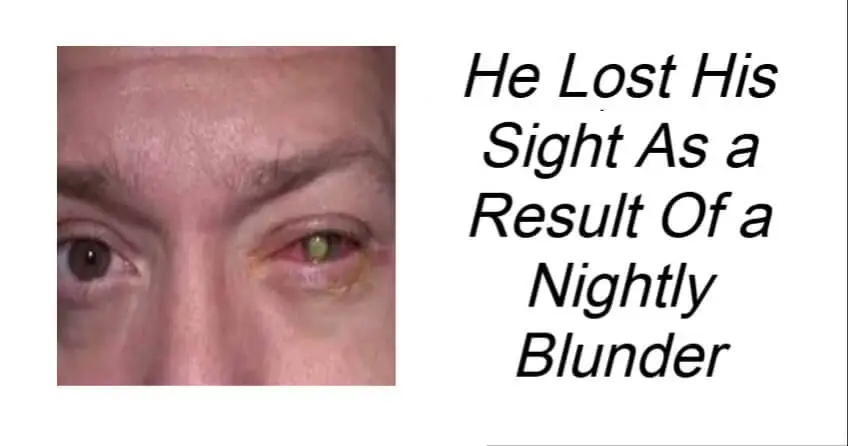He Lost His Sight As a Result Of a Nightly Blunder
A 39-year-old man named Groeschen woke up one morning to find that his eye was irritated. Over the following days, his condition worsened, forcing him to seek medical attention. When he arrived at the Cincinnati Eye Institute, doctors delivered devastating news—he had contracted a bacterial infection caused by Pseudomonas.
The Cause: Sleeping with Contact Lenses
According to his doctors, the infection developed because he had been sleeping with his contact lenses on. Pseudomonas bacteria thrive in warm, moist environments, making the space beneath contact lenses an ideal breeding ground.
“It’s like looking through a piece of opaque glass,” doctors explained. “Your cornea becomes eroded due to the infection, and as it heals, scar tissue forms, making it even harder to see.”
Unfortunately, the only way for Groeschen to regain his sight was through a cornea transplant, a procedure with a recovery time of approximately one year. This devastating outcome also impacted his work as the owner of a design-based restoration company, making it difficult for him to continue his job.
Misleading Packaging and Eye Health Warnings
Groeschen noted that the packaging for his contact lenses stated they were safe to wear overnight. However, experts warn against this practice. The American Academy of Ophthalmology issued a warning in 2013, stating:
“Overnight wear, regardless of contact lens type, increases the risk of corneal infection.”
Dr. William Faulkner, the ophthalmologist who treated Groeschen, emphasized, “Eye safety is the top priority. I do not recommend sleeping in contact lenses. The safest option is daily disposable lenses.”
Other Risky Contact Lens Habits
Beyond sleeping in contacts, other dangerous behaviors increase the risk of eye infections, including:
- Using lens cases for too long—Cases should be replaced every three months to prevent bacterial buildup.
- Not fully emptying the lens case before refilling it with solution—Topping off old solution instead of replacing it entirely can allow bacteria to multiply.
Final Takeaway: Protect Your Eyes
Groeschen’s experience serves as a serious reminder of the risks associated with improper contact lens use. While some lenses may be marketed as “safe for overnight wear,” ophthalmologists strongly advise against this practice. Proper lens care, including daily disposal or regular cleaning and case replacement, is essential to preventing serious eye infections and preserving long-term vision health.
You’ve just read, He Lost His Sight As a Result Of a Nightly Blunder. Why not read Manager Had To Hire A New Employee.

